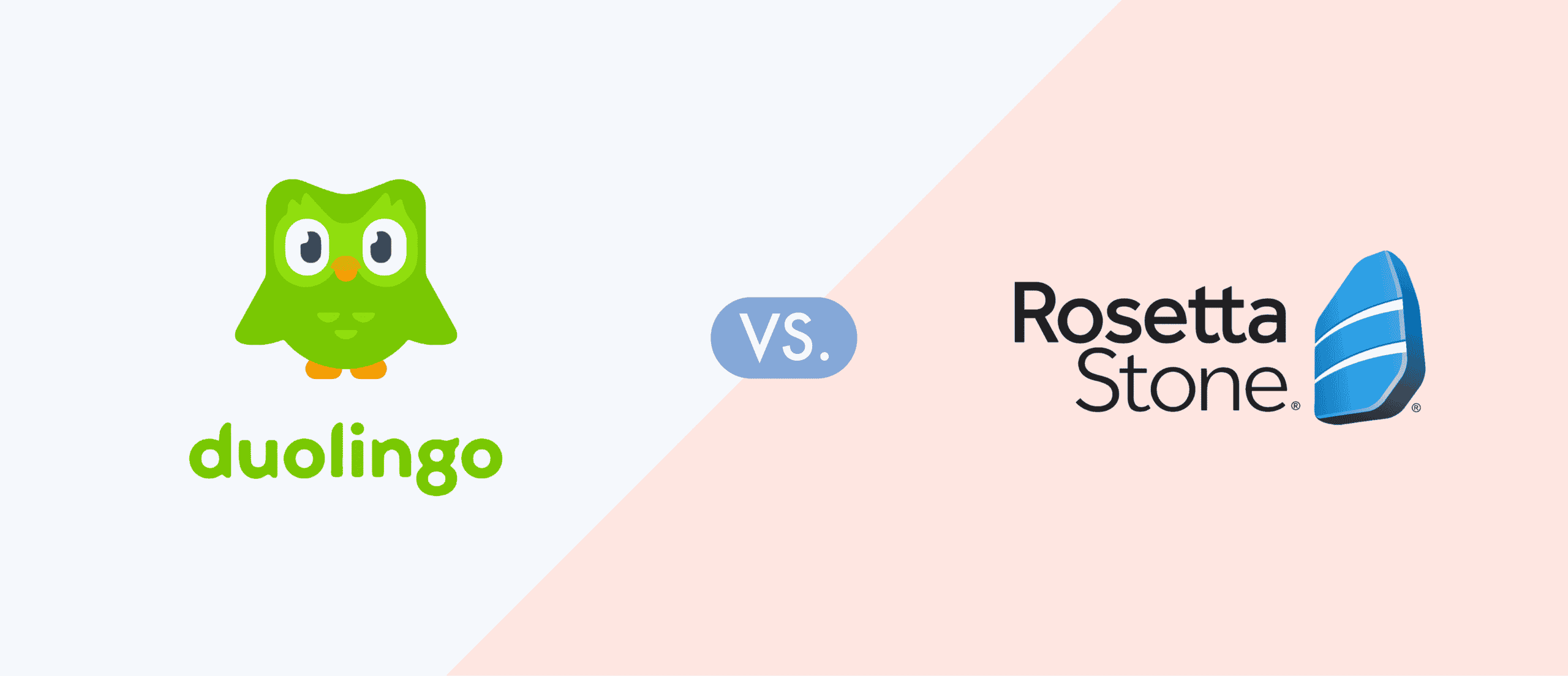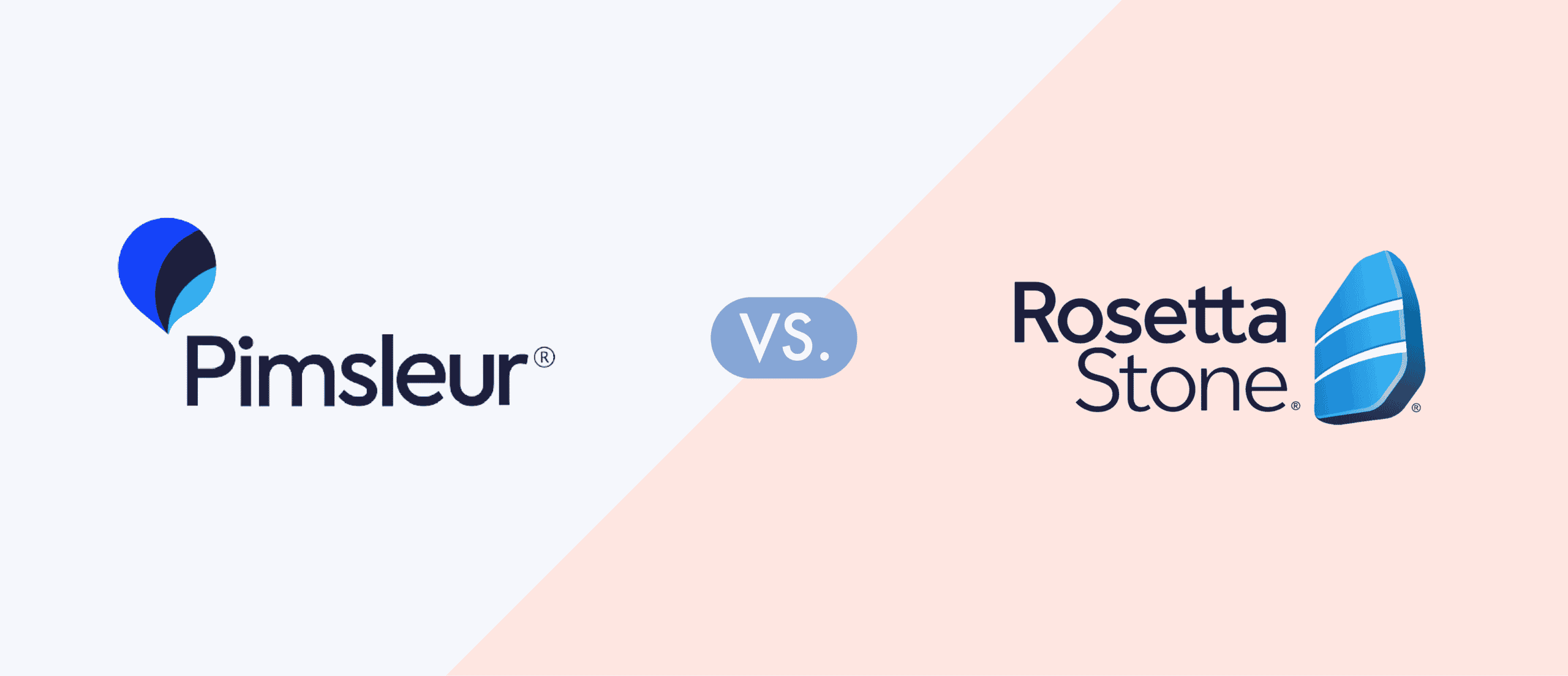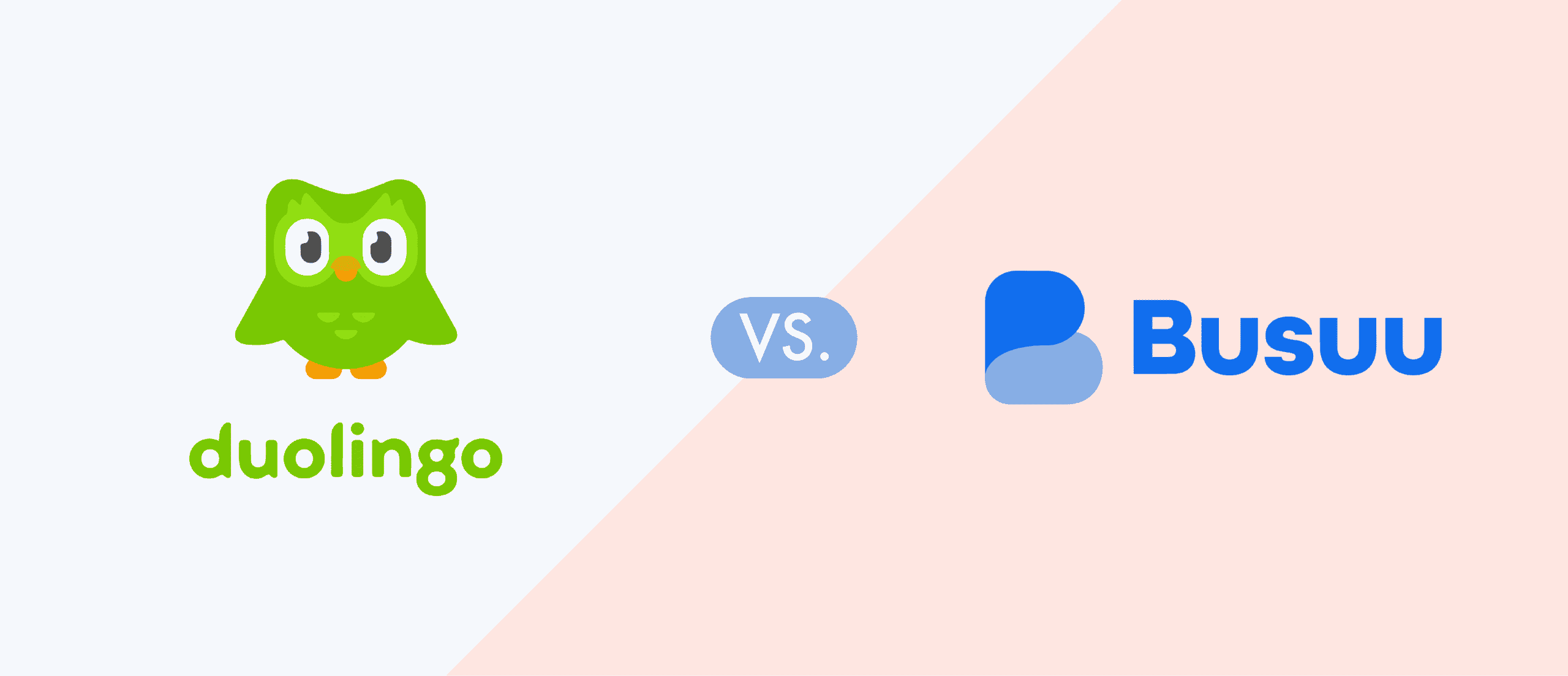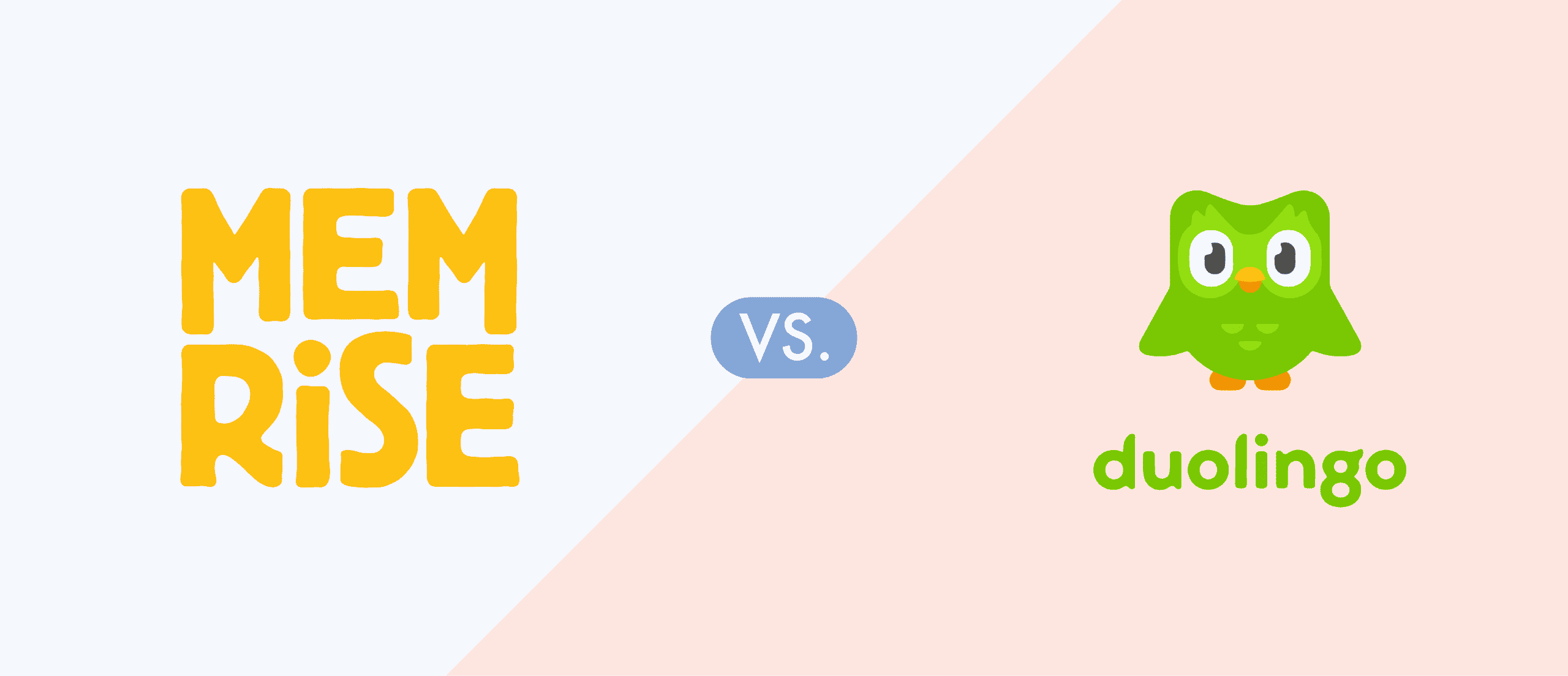Duolingo Vs Rosetta Stone
Updated: 09. Mar, 2023
As new language speakers will testify, learning a new language can be thrilling and super-exciting. But that’s only when you’ve learned from teachers with a superior mastery of the language. One popular place to find such language experts is on popular language apps like Duolingo and Rosetta Stone.
But more than that. The quality of learning you get from a language app goes beyond the knowledge level of its language experts. The delivery style, ease of use, lesson plan, support and feedback, and many more factors will go a long way in determining your performance.
As Duolingo and Rosetta Stone vie for your attention, they will love the chance to get you to see their strengths. But unfortunately, while both apps have earned a solid reputation over the years, they won’t appeal to you the same way.
That’s what this article is about, to place both apps on a scale and let you be the judge.
Overview of Duolingo
Let’s start by mentioning the most outstanding quality of the Duolingo App. It’s free! Duolingo was the first language learning app to make zero demands on our wallets. However, Duolingo hasn’t sustained its success in the language app market only by being free. It has provided value and helped millions of people achieve their language dreams.
Duolingo was conceptualized and birthed by Luis von Ahn and Severin Hacker. It was released in November 2011 and made available for public use in June 2012. Since then, the company has won the hearts of many language enthusiasts worldwide. The U.S.-based company has attracted over 49 million users since its publication.
Duolingo runs the popular Duolingo English Test. Many colleges and universities worldwide have adopted this English language proficiency test to judge English proficiency. As a result, the Duolingo English Test is also a highly sought-after certification option.
The Duolingo app is available on Android, iOS, and web browsers. The software has over 13 million reviews on the Google Play store, with a 4.6-star rating and over 100 million downloads. In addition, Duolingo boasts of being the choice language learning app for over 500 million learners.
The Duolingo app creates a fun and somewhat childish learning environment for its users. Duolingo plays with many colors, sounds, engaging podcasts, and fun stories. Its simple layout will give users a stress-free time moving around. Unfortunately, users have to win points to unlock levels. While this advancement system is a paradise for game-savvy users, it might be a turn-off for the not-so-patient learners.
Duolingo breaks down its learning content into several categories or units. Each unit has its own collection of unique everyday scenarios like festivals, road trips, and manners, which learners can experience through the app.
Overview of Rosetta Stone
The Rosetta Stone language learning app was released to the public under the umbrella of its parent company, IXL Learning. When Founder Allen Stoltzfus desired a language-learning resource to help him speak Russian, he met a brick wall. No available language solution was robust and practical enough to deliver quality knowledge. That’s when he decided to be the solution. Rosetta Stone, named after a groundbreaking Egyptian artifact, was envisioned to change the language learning landscape.
The app has met significant success over the years. Currently, it has opened its arms to millions of learners worldwide. The app has registered over ten million downloads on the Google Play Store, scoring a 4.6 with over 340,000 reviews. Rosetta Stone emphasizes pronunciation and heavily relies on user participation.
Not every language-learning app is easy to use. However, the Rosetta Stone app is navigation friendly. So you can easily find your way to access the 25 available languages.
Rosetta Stone soaks you in the language until your only choice is to conquer it. From the get-go, all you will see and hear will be nothing other than your target language. The learning process without translation can be a major put-off for many learners. In addition, if you are new to the target language, the lack of translation can make you lose enthusiasm. However, Rosetta Stone allows users to enable translations if they have difficulty coping without it.
Besides visual and oral exercises, Rosetta Stone offers extended learning. Its extended learning feature allows you to listen to a native speaker read out a story or a collection of phrases. Then, you can pause the audio to repeat the phrases or parts of the story as much as you like.
What are the Similarities Between Duolingo and Rosetta Stone?
Even though Duolingo and Rosetta Stone seem to be miles apart in similarity, they share several features. Let’s see what these common interests are.
Customized learning
One thing to love about Duolingo and Rosetta Stone is their customized learning approach. Unlike some other language learning apps, none of them presumes what your interests will be. For example, Duolingo tailors your learning needs to your learning motivation. As you set up the app, you must indicate why you want to learn the new language. You will come across options like career, education, travel, connect with people. Rosetta Stone also allows you to choose a learning plan, each with its corresponding number of lessons. You also pick your goals, such as travel, work, family, basic, and beyond.
Flexibility
Both Duolingo and Rosetta Stone are flexible apps to use. Neither of them behaves like military taskmasters. Learners can choose how much learning they can handle daily based on their learning goals. For example, Duolingo users can choose to practice for 3 minutes, 10 minutes, 15 minutes, or 30 minutes per day, same as Rosetta Stone. Rosetta Stone also allows you to work at your own pace by choosing how much learning you desire to complete daily.
Speech Recognition Technology
While language learning apps fail to produce expert speakers, they must do their best to get learners as close to perfect as possible. Speech recognition technology is one way to boost the effectiveness of a language-learning app. Thankfully, both apps offer speech recognition.
With speech recognition, learners can see how close their pronunciations are to those of native speakers. Plus, the ability to measure one’s progress can provide the motivation to improve. However, Rosetta Stone’s speech recognition technology performs better than Duolingo’s.
Differences Between Duolingo and Rosetta Stone
Duolingo and Rosetta Stone aim to help their users achieve significant language proficiency in a short time. However, the apps use contrasting methods to achieve this. Here are the significant differences between learning on Duolingo and Rosetta Stone.
Pricing
It is almost impossible to overlook price considerations in language learning apps. When we compare Duolingo and Rosetta Stone prices, there is a massive gulf between them. As we have mentioned earlier, Duolingo is free. You can use the app and access all its features and not pay a dime. However, users must put up with adverts to compensate for the free services. For users who can’t stand ads, Duolingo introduced Super Duolingo. Super Duolingo is an optional subscription plan that is advert-free. Duolingo Plus costs $6.99 per month after a 14-day free trial. As an added advantage, Super Duolingo learners enjoy a restriction-free learning experience. Super Duolingo users, unlike the basic plan users, can randomly select their lessons without going through a compulsory lesson progression.
Rosetta Stone allows subscription-based payment for its services. The app operates three subscription plans. These are the 3-month plan for $35.97, the 12-month plan for $95.88, and the lifetime/one-time subscription plan for $299.
Lesson Structure
There is a difference in lesson structure for both apps. Duolingo’s lesson structure is like a huge tree that divides into several units that are patterned to look like castles. Each castle or unit contains several “fruits.” To finish a fruit, you will have to complete several lessons. After finishing all the fruits in a unit, you will exit through a checkpoint that leads to another castle where another unit begins. Overall, Duolingo is structured to look like a game with the goal of moving from castle to castle. While you advance, you will need to perform well enough to earn points and rewards, which you require to unlock new learning levels.
Rosetta Stone uses a less elaborate lesson structure. You begin with the Basic level or unit. There are twenty such units that consist of a series of lessons. As you advance, a yellow horizontal bar shows how far you are to the end of the course. After completing a lesson in a unit, there is pronunciation, speaking, vocabulary, grammar, review, and listening exercise before the next unit begins.
Ability to Skip Lessons
As you advance through the course, you will be tempted to skip lessons. No need to question anyone’s rationale for wanting the do so. Many learners will feel the need to do so at certain points. We have found that the two apps hold different opinions on the issue. While Duolingo ensures that users complete one level before advancing to the next, Rosetta Stone uses a more liberal approach to learning. You can skip Rosetta Stone lessons as much as possible; you’re not mandated to follow the progression.
Translation
A notable characteristic of the Rosetta Stone course is its lack of translation. While Duolingo users enjoy the mix of home and target languages, Rosetta Stone’s courses are entirely in the target language. While many language experts and enthusiasts do not believe that this style benefits the learner, some think otherwise. Rosetta Stone aims to enhance familiarity with the target language by surrounding the learner with it. Some opinions agree with the motive.
While we can see reason with Rosetta Stone, one major concern about the lack of translation is its effect on newbie learners. The less familiar a learner is with the target language, the higher their need for translation. As a result, a lack of translation can produce a feeling of loneliness.
On the other hand, Duolingo is heavy on translation. While the no translation learning in Rosetta Stone can put off a learner, Duolingo offers its extreme in that area. If your proficiency level is above “beginner,” you may need a challenge. Duolingo relies too heavily on translation to test your skills enough.
Based on the translation issue, you might fare better as a beginner on Duolingo and as an intermediate in Rosetta Stone. But, again, it’s up to you to decide.
Learning Technique
Duolingo wanted to create a fun atmosphere for language learning, hence its gamification. Duolingo believes that by making language learning seem like a mission and providing rewards along the way, learners will have more than enough motivation. Duolingo aims to strengthen the vocabulary and fully engage its users.
On the other side of the ring, Rosetta Stone challenges your memory and ability to think logically. Rosetta Stone also wants to make a difference in your accent. The app uses images, sound, and voice tests to strengthen your grasp of the language further.
Live Classes
Live classes are a fantastic way to solidify your target language knowledge. You get to learn from a language expert and other students like you. In addition, live classes are golden opportunities to experience something close to the classroom.
Unfortunately, Duolingo doesn’t organize live classes. Instead, they provide learners with links to external classes that may be free or paid.
Rosetta Stone runs live classes with language experts daily. These classes will contain a maximum of six learners so everyone can receive adequate attention.
Competition
Duolingo completes the gaming experience by creating an avenue for learners to connect and compete. Learners slug it out for experience points. The top ten ranked learners make it to the next level, where they get to compete with the very best. Leaders can see how they rank with other learners on a leaderboard.
Not only does Rosetta Stone lack this feature. In addition, the app offers no opportunity for competition.
Duolingo Vs Rosetta Stone-Frequently Asked Questions
Let’s go over some popular questions about Duolingo and Rosetta Stone.
Is Duolingo Better than Rosetta Stone?
Maybe. Both apps can take you to a significant level of proficiency if you give them your full attention. Finding which app is better for you is the best way to choose. Choose the app that best meets your preferences and specific needs.
How Long Does it Take to Become Fluent in Rosetta Stone?
The duration it takes to become fluent in Rosetta Stone isn’t the same for everyone. However, the general period for attaining fluency is about 44 weeks. But that is for languages that are a bit similar to English.
Can One Become Fluent in Duolingo?
Yes, but with the help of native speakers. Duolingo alone does not have what it takes to get you the highest level of fluency. However, you can augment your lessons by interacting and practicing with a native speaker.
How Long is Rosetta Stone’s Free Trial?
Three days. Rosetta Stone lets you set up a payment method before getting a feel of the app. You will have access to all the available languages on the app during your free trial period. Your payment should happen automatically when the free trial period elapses.
Conclusion
Over the years, Duolingo and Rosetta Stone have made their mark in language learning. Choosing which to go for could be pretty tricky. However, they have strengths and weaknesses you should know about. Also, before you make a choice, ensure that you factor in your learning needs, financial capacity, and preferences. Then, after examining their similarities and differences, you are in the best position to determine which will best serve your interests.
Table of contents
Read more
Rosetta Stone vs Pimsleur
While looking for the best app to learn a new language, you must have come across Rosetta Stone and Pimsleu...
READ ARTICLE
Duolingo vs. Busuu
The benefits of language learning extend beyond pure fun. It may be quite helpful in many facets of your li...
READ ARTICLE
Duolingo vs. Memrise
Making life decisions can be tough. Choosing between Duolingo and Memrise for your language learning journe...
READ ARTICLE



